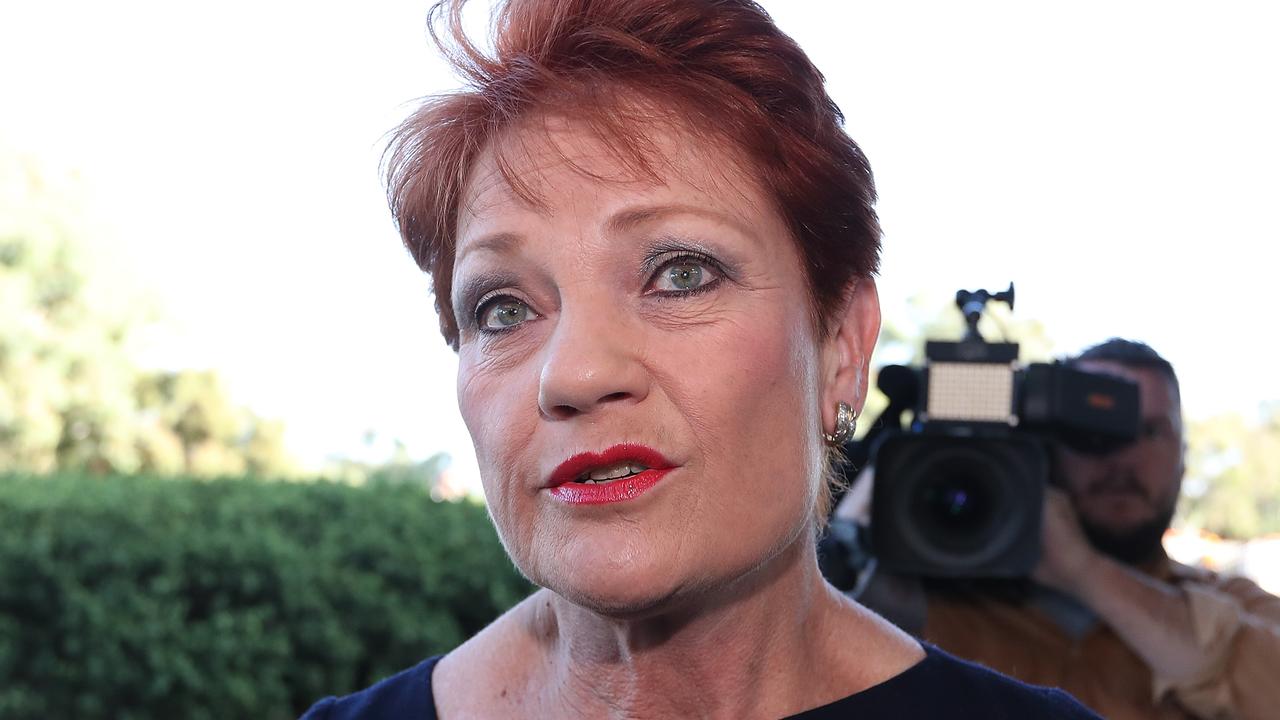Indonesia and Malaysia turnbacks ‘risk refugee crisis’
The apparent determination of Malaysia and Indonesia to rebuff asylum-seekers is sparking a regional refugee crisis.

The apparent determination of Malaysia’s coast guard and Indonesia’s military to rebuff boatloads of Myanmarese Rohingyas and Bangladeshis is precipitating a regional refugee crisis.
A senior Malaysian coastguard official said yesterday the agency would stop asylum-seekers and other irregular migrants from landing unless their boats were sinking.
A spokesman for Indonesia’s military command (TNI) said that having turned back a boat carrying more than 400 people on Monday, the navy would push back any others found in its territorial waters.
“If they’re in Indonesia’s water and they don’t have permission to enter Indonesia, we will direct them out,” Major General Fuad Basya told The Australian.
His statements and his account of Monday’s operation off northern Aceh contradict the Foreign Ministry and earlier navy accounts. Whether the actions and threats of the Indonesian and Malaysian frontline agencies reflect government policy, they are stoking a sudden regional refugee crisis.
A UN refugee agency official described as “extremely disturbing if they are correct” the reports from Indonesia and Malaysia.
EDITORIAL: Border control in the spotlight
With 6000-8000 Rohingyas and Bangladeshis stranded aboard boats in the Andaman Sea and Malacca Straits, “we’re pushing close to a humanitarian crisis”, said Vivian Tan, a spokeswoman for the UN High Commissioner for Refugees regional representative in Bangkok.
Thailand has called an emergency conference for May 29, to which it has invited Indonesia, Malaysia, Bangladesh, the UNHCR, Australia and the US, which has been pushing hard for a concerted regional response. There was no mention, however, of Myanmar’s attendance.
The Naypyidaw government refuses to discuss in international forums the plight of Arakan state Rohingyas, a severely persecuted Muslim minority.
“This conference is really welcome,” said Ms Tan. “We’re hoping they’ll talk about search and rescue, refugee screening, disembarkation, and UNHCR is ready to help with that process.” Many of the thousands believed to be still at sea would be running short of water and food, if not already seriously ill from deprivation, Ms Tan said.
But First Admiral Tan Kok Kwee of Malaysia’s Maritime Enforcement Agency said yesterday the agency would turn away boats entering its waters, unless in imminent danger of sinking.
“The policy has always been to escort them out of Malaysian waters after giving them the necessary provisions,” he said on Langkawi, the resort island where more than 1000 illegal migrants landed late last week.
The immediate crisis was triggered on May 1 when Thai authorities, after turning a blind eye to trafficking activities through southern Thailand, cracked down with a wave of arrests. That accompanied the discovery of more than two dozen bodies near abandoned camps, from where traffickers have held illegal migrants for ransom from families in Myanmar, Bangladesh and Malaysia, where most end up as refugees or illegal workers.
Southern Thailand has also served as the traffickers’ main transit point into peninsular Malaysia; but the Bangkok crackdown shut that door.
Since late last week, at least 1015 Myanmarese Rohingyas and Bangladeshis — about half of them also Rohingyas — have made land at Langkawi. Indonesian authorities are sheltering about 580 people who landed at the weekend in northern Aceh, before the navy’s turn-back on Monday morning.
Foreign Ministry spokesman Arrmanatha Nasir yesterday pointed to their treatment to rebut suggestions the navy was following the Abbott government’s asylum-seekers turn-back policy, hotly criticised by the current Widodo administration and its predecessor.
“This case cannot be considered similar to Australia’s,” Mr Arrmanatha said. “We didn’t put them in lifeboats and then send them to remote islands.
“We put them in Aceh, we shelter them and give them medical treatment and food.”
Mr Arrmanatha took up the navy’s explanation that the reason 400-plus people were turned away towards Malaysia was because that was where they said they wanted to go.
“If the people don’t want to go to Indonesia, then of course we can’t force them to enter Indonesia,” he said.
A spokesman for the Western Fleet said yesterday the navy had fed and watered the passengers and refuelled the boat before escorting it to the margin of Indonesia’s territorial waters.
News agency AP reported last night that a boat crammed with more than 500 refugees was found yesterday off Penang Island, northern Malaysia.
A Malaysian official said the boat was full of desperate people and had not been boarded last night because of the risk.
The TNI’s Major General Fuad insisted the boat had been “rejected” by the navy as a deliberate strategy and he contradicted the navy-Foreign Ministry account of the turn-back.
“If (asylum-seekers) are found on Indonesian land already, according to policy we have to accept them,” he said. “As far as boats in the ocean, we reject them because they don’t have permission to enter Indonesia.”
The passengers’ condition was “concerning” so the navy gave food, water and medication, Major General Fuad said, but because of language difficulties there was no discussion about whether they wanted to land in Indonesia or go to Malaysia.


